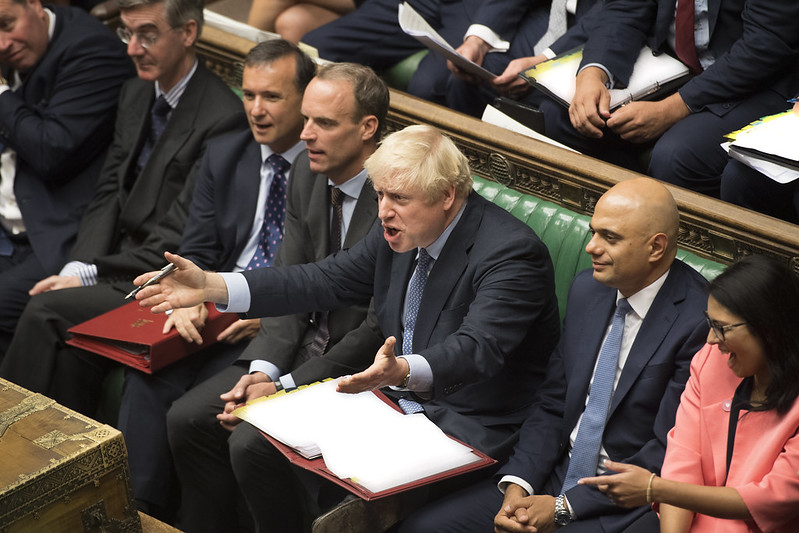Tamsin Allen asks why a former intelligence agent is being denied the right to a fair hearing

MI5 officers guard many secrets. But, as Stella Rimington well knows, they can tell their own personal stories providing no genuinely secret and damaging information is revelealed. A former agent has to seek prior approval for
publication from his or her ex-employers and, if it is not given, any dispute will ultimately be adjudicated by a High Court judge with all the usual safeguards to ensure a fair trial. Or so it was thought.
However, in a recent dispute over the publication of a manuscript, MI5’s Director of Establishments applied for the claim to be removed from the jurisdiction of the High Court. The High Court refused to relinquish its role or to deprive the claimant of his fair trial rights, but the Court of Appeal has now forced the claimant’s case into a secret tribunal where there is no public hearing, no scrutiny by the media, no reasons are given and from which there is no appeal (A v B, ECWA Civ 24).
How has this happened? What about the government’s commitment to open justice? Isn’t sunshine the best disinfectant where the intelligence services are concerned?
Apparently not. It is currently impossible to say much about the claimant in the case, or his book, apart from the fact that he was a senior and trusted MI5 official with a critical role in the history of anti-terror intelligence operations. He received an OBE in the UK and the Order of Merit from a foreign government.
When his career ended, he wrote a thoughtful and considered autobiography. It was critical of MI5 and the way it treats its own field agents. But he applied his considerable experience to distinguish between real secrets and information which was already in the public domain or was harmless.
He took care, he thought, to protect national security, MI5 methodologies and identities. He was well placed to make those judgments. This author is no Peter Wright, no David Shayler, deciding to publish and be damned. Instead he used the proper procedures to authorise publication. After all, the House of Lords had said in the Shayler case that anyone subject to the Official Secrets Act who is refused permission to publish a book may seek judicial review of that decision.
So, when he was refused permission, the claimant issued judicial review proceedings in the High Court. He argued that the refusal was unlawful and a breach of his right to freedom of expression. But the defendant responded by claiming that judicial review is not, after all, the appropriate way to challenge MI5’s refusal to permit publication. The only place in which the case can be heard, so it says, is the Investigatory Powers Tribunal. This shadowy body sits in secret and the public are denied access to its hearings. The other side’s case may not be known. If it finds against a party, no reasons are given. There is no mechanism to challenge any decision and no appeal to any higher court.
On the face of it, this is a blatant denial of the rights to a fair trial guaranteed under the European Convention. Article 6 of the Convention says that everyone is entitled to a fair hearing in public and that right may only be circumscribed in very limited circumstances. This is no new principle. It is repeated in the US Bill of Rights, the International Covenant of Civil and Political Rights and every other human rights instrument dealing with fair trials. It is the principle which informs all the other principles of justice. In Scott v Scott decided in 1913, Lord Shaw described the principle as “a sound and very sacred part of the constitution of the country and the administration of justice”. Without openness, how can judicial behaviour be monitored, bias prevented, decisions scrutinised and, of particular importance in a common law jurisdiction, the law developed?
There has already been one challenge to the procedures of the tribunal which resulted in very limited parts of tribunal decisions being made publicly available. But in that challenge the tribunal decided that its own procedures were largely compliant with Article 6. And of course there is no appeal against that decision.
The secret tribunal came into being with the Regulation of Investigatory Powers Act 2000 following successful challenges to the UK in the European Court over the lack of legal basis for surveillance. It is this Act which gives the intelligence and security services the power to bug telephones, install listening devices and undertake surveillance operations and regulates the exercise of those powers. The tribunal was set up to deal with challenges to such powers. If a suspected terrorist has been put under surveillance and he brings a legal challenge on the basis that his right to privacy has been violated, then the tribunal can hear evidence in secret, decide that the surveillance is justified and make a finding on lawfulness of the surveillance without either confirming or denying that it has taken place. One can see a justification for the tribunal’s procedures in those circumstances. But the jurisdiction of a tribunal which does not guarantee any of the fundamental fair trial rights of an individual should be strictly limited.
However, rather than limiting the tribunal’s role, the Act appears to widen it by bringing all Human Rights Act claims against the intelligence services within its jurisdiction. This provision was a late catch-all intended to ensure that the three old tribunals dealing with the different branches of the intelligence services (MI5, MI6 and GCHQ) were replaced by a single tribunal. It came into force on the same day that the Human Rights Act came into force and Parliament obviously wanted to ensure that new claims for breaches of Article 8, the right to privacy, could be dealt with outside the usual court system.
So, on the reading of the statute favoured by the Court of Appeal, a freedom of expression claim by a whistle-blower who wanted to publish revelations of fraud in MI5 or MI6 would be heard in the secret tribunal. So might a human rights claim by a torture victim against the secret intelligence services for collaboration in his or her torture — not so far-fetched so it seems. These are plainly cases of the highest public importance where serious wrong-doing by the state is alleged and fundamental rights of individuals are engaged. Openness is of paramount importance in such claims.
That is not to say that sensitive intelligence information must be revealed to the public. There are plenty of mechanisms in the civil justice system to allow national security to be protected. The public can be excluded from parts of hearings; special advocates can be appointed to represent parties when intelligence is deemed too sensitive for the parties or their usual lawyers to see it. But in the ordinary courts, fundamental principles of fairness and open justice will prevail except where it is strictly necessary to limit them.
The words of a former Lord Chief Justice are perhaps all the more relevant where the issue is an individual’s freedom of expression: “It is not merely of some importance but is of fundamental importance, that justice should not only be done, but should manifestly and undoubtedly be seen to be done.” As AC Grayling pointed out recently in an article for Index on Censorship, “There are two bedrock civil liberties without which the very idea of civil liberty is empty. They are freedom of speech and due process of law.” This claimant has suffered a double blow in being denied first right his freedom of expression and then his right to due process.
The claimant first tried to publish his manuscript three years ago. Since then, he has spent a fortune fighting the refusal and is convinced that his former employers are delaying matters in the hope that he will be unable to continue his claim. Happily, the House of Lords has given leave to appeal the Court of Appeal judgment. Even if he wins in the House of Lords, the claimant will then have to revive his original quest to publish his story, but at least it will be before a court whose judgments can be scrutinised, criticised and appealed against, and at least he will, in the end, know why he has won or lost.
Tamsin Allen represents the claimant in A v B. She is a partner in the media and public law department at Bindmans
An edited version of this article appears in The Times




